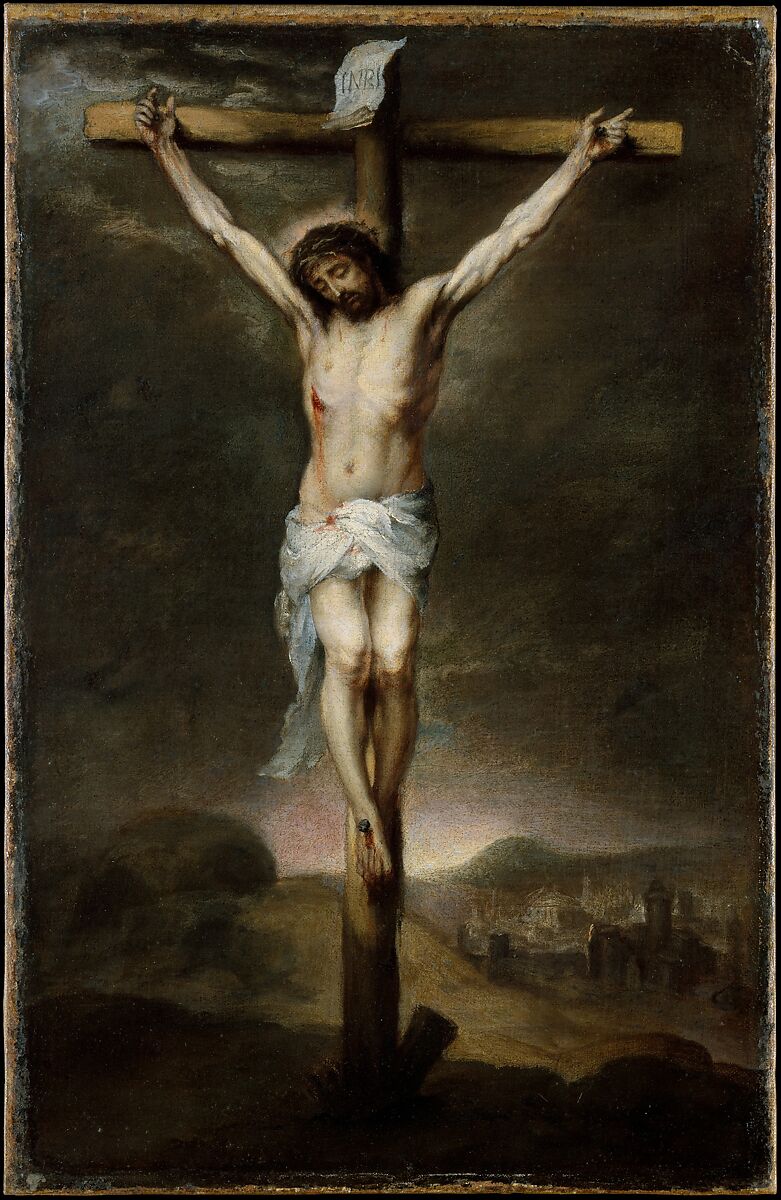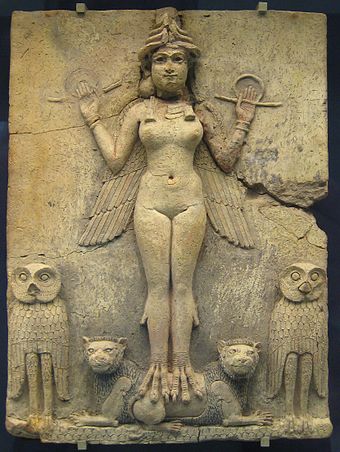Here’s a look at how Christianity might have developed, leaving god out of the account except as a belief of those involved. Perhaps it would avoid killing if people could realise they are just comparing stories.
A new religion came about after 70 AD, based in Rome, as the sect of Judaism that had known and followed Jesus was forced into the heretical (to Judaism) position of declaring him god, the son of god. That religion was Christianity.
Jesus had impressed those who knew him as a holy man, a prophet like Elijah, or perhaps, like John the Baptist. Then some thought him the longed for Messiah whom god would send to restore the kingdom of David. But his crucifixion showed him to be just a common criminal – unless his followers could find another reason for his death.
 The choice was: prophet, or Messiah, both part of the Jewish culture, now in disarray after Jerusalem and the Temple had been destroyed in 70 AD but before the rabbis had regrouped in Alexandria. Or a divine being, son of one of the gods, common in Graeco-Roman religion, or a crucified criminal, common in Roman administration of justice.
The choice was: prophet, or Messiah, both part of the Jewish culture, now in disarray after Jerusalem and the Temple had been destroyed in 70 AD but before the rabbis had regrouped in Alexandria. Or a divine being, son of one of the gods, common in Graeco-Roman religion, or a crucified criminal, common in Roman administration of justice.
What kind of god or holy man was he? As the followers spread to Greece and the eastern seaboard of the Mediterranean Sea they found the religion of Inanna, worshipped by the people of Sumer, the Assyrians and many others from 4000 BC.
One of the stories about Inanna, or hymns sung in her honour, told of how the mighty Queen of Heaven descended to the underworld. She was able to do this only by shedding each of her divine powers. Finally she became just a corpse. She, an immortal god, had died, and her body was hung upon a hook. Rescued by her brother, Inanna ascended again to Heaven, and regained her divine powers. But now Inanna had conquered death, and could offer her worshippers immortality.
 Because the god of the Jews, whom they called YHWH, was superior to other gods (called henotheism not monotheism), even Inanna; and if Jesus had offered up his life to gain forgiveness for sin of all mankind, he must be, not just a holy man, but god. But there was only one god (circular reasoning though this is).
Because the god of the Jews, whom they called YHWH, was superior to other gods (called henotheism not monotheism), even Inanna; and if Jesus had offered up his life to gain forgiveness for sin of all mankind, he must be, not just a holy man, but god. But there was only one god (circular reasoning though this is).
It took almost 100 years for the leaders of the new religion to sort all the problems this conclusion had caused.
The first problem, of guilt, was easily solved, that guilt had been encouraged by the prophets at every lapse of the Jewish people. They had come to believe that as a people they had inherited the faults of Adam and Eve. The book of Genesis had told them that god had allowed them freedom to do what they liked, but had pointed out trees, that of knowledge between god and evil, and that of eternal life, and forbidden them to eat of the fruit of the first, and they had disobeyed him. From now on not only could they choose evil, they would know it. As good Jews the followers of Jesus knew this. Could the Jews have killed Jesus as a consequence of the sin of Adam? Could god, Jesus, have sacrificed himself to save mankind from the consequences of this as the false god Inanna had?
The question how occupied the Fathers of the church of Jesus, with much discussion of the nature of Jesus, whether human or divine, or partly both. In some mysterious way Jesus was both god and man, able both to suffer as a man and save as a god.
![]() A thornier question was, how could there be two gods, YHWH and Jesus, who were at the same time one god. Jesus was not the son of god in the sense Apollo was the son of Zeus, and not both divine and human as the children of Leda, Castor divine, Pollux human from the one egg, Helen of Troy divine and Clytemnestra human from another.Neither was he a demi god. These were concepts and stories that Christian leaders found all around them in Greece as they gathered in one of the churches founded by Paul.It was to preserve their Jewish heritage that Jesus’ followers opposed Paul’s attempt to convert the gentile.
A thornier question was, how could there be two gods, YHWH and Jesus, who were at the same time one god. Jesus was not the son of god in the sense Apollo was the son of Zeus, and not both divine and human as the children of Leda, Castor divine, Pollux human from the one egg, Helen of Troy divine and Clytemnestra human from another.Neither was he a demi god. These were concepts and stories that Christian leaders found all around them in Greece as they gathered in one of the churches founded by Paul.It was to preserve their Jewish heritage that Jesus’ followers opposed Paul’s attempt to convert the gentile.
The Fathers came up with another concept impossible to reason, like the dual nature of Jesus. This was the idea of ‘person’, the essential nature of god, which could exist with other ‘persons’ within the same godhead. So one god, YHWH, could exist as a ‘person’ within the god YHWH together with another ‘person’, Jesus, the son of YHWH. Each was god, and both were god. To make matters clearer the Fathers added a third ‘person’, the holy spirit or effective power of YHWH. This was his breath. He breathed on the waters and so created life, he breathed on the red clay and created Adam. It was the breath of life. It was what John, a theologian who lived on the Mediterranean coast about 100 AD, meant when he said: “In the beginning was the Word, and the Word was with god, and the Word was god”.
The fall of Jerusalem in 70 AD was not the complete disaster it appeared to be. It ended the Temple worship form of Judaism, but ushered in the creation, revision and editing that produced the people of the Book. It revealed to Jews a range of foreign beliefs about god they were not aware of. Gnosticism flourished. Christianity flourished. And among new concepts was that of the avatar.
 The avatar was an incarnated god. God might be incomprehensible to human reason, but an aspect of god, his avatar, might take human flesh and be understood by humans. These were ideas from Hinduism, contained in the Upanishads and later writings, and they were used by the Fathers to explain the doctrine of the Trinity, of how three gods could be one god. The new faith would take ideas from many other faiths to ensure the crucified criminal was forgotten and the god who died to gain forgiveness for man’s sin was remembered, that the Messiah was given a spiritual rather than a royal association, and that the many godlets fathered by Zeus on the Nymphs were seen as frivolous.
The avatar was an incarnated god. God might be incomprehensible to human reason, but an aspect of god, his avatar, might take human flesh and be understood by humans. These were ideas from Hinduism, contained in the Upanishads and later writings, and they were used by the Fathers to explain the doctrine of the Trinity, of how three gods could be one god. The new faith would take ideas from many other faiths to ensure the crucified criminal was forgotten and the god who died to gain forgiveness for man’s sin was remembered, that the Messiah was given a spiritual rather than a royal association, and that the many godlets fathered by Zeus on the Nymphs were seen as frivolous.
So I imagine it might have gone, related by someone with a 20th century sensibility. But we have the gospel account: a magic star, three kings, an angelic visitation, speaking with tongues, a voice from the heavens, reappearance of the crucified man, miracles, an ascension to heaven. The gospel account is skilfully written, sophistically persuasive, absolutely convincing, and full of spiritual wisdom. It was the good news, the right book for the right time, and would have sold millions if anybody had thought to sell it. If there had been no crucifixion, if Jesus had been a teacher, a spreader of wisdom like Gautama or Confucius…